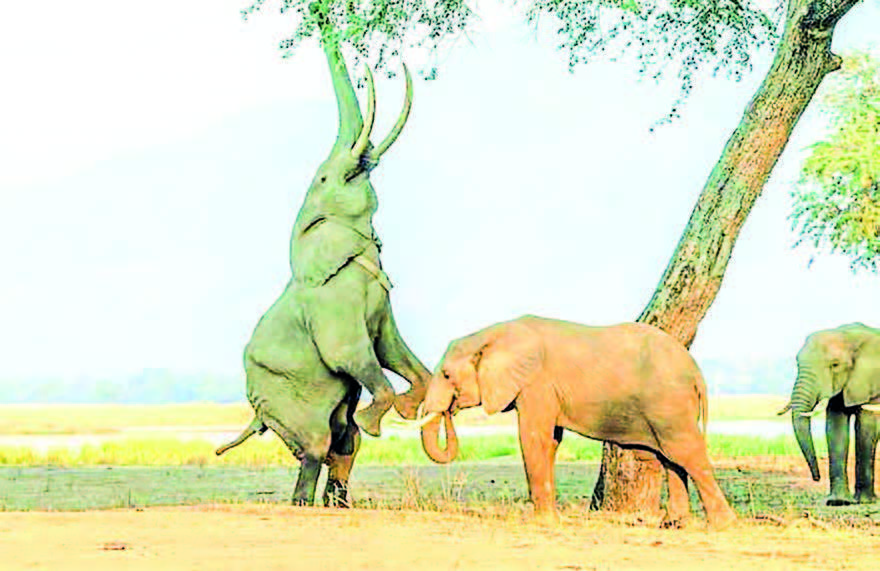THE elephants from Bago mountain range reside in the summer fields in Taikkyi and Hlegu Townships, Yangon Region, every year, causing human-elephant conflicts. This year, the elephants did not come, and the farmers peacefully and safely harvested their paddy, according to the Forest Department of Hlegu.
During the hot season, the springs near the Bago mountain range dry out, and the elephants drink the water and eat the paddy in the villages and forests near the Bago Yoma. When the farmers come to their fields in the daytime, they encounter the elephants. Therefore, the department drove them out and conducted educational programmes to prevent human-elephant conflicts.
“Currently, the Bago Yoma elephants eat the paddy in the fields, and we have to drive them out. This year, they did not come because it rained during the Thingyan period, and the lakes were filled with water. Therefore, they did not come here because they had enough water to drink. They usually come here when the paddy is ripe. They entered into three or four villages last year. In March, they come down from the mountain and eat the paddy and sugarcane during the Thingyan period. They return when they hear the sound of a rainstorm. This year, April is almost over, and they have not come here. The farmers get relief. The department conducts educational programmes in every season to prevent human-elephant conflicts, and the conflicts decline,” said U Win Naing, head of the department.
Last year, about 10 to 15 elephants entered Layeainsu, Yaynetgyi and Taunghtet villages in Hlegu Township and Phalon, Sanywa, Meelaunggon, Pado, Payhnaselywa, Kuntheehmyaung, Alehmyaung, Maukhon and chaungsauk villages in Taikkyi Township. The elephants from Bago Yoma reside near the forests and caves near the paddy fields, and they return later on 17 May or in early June.
Elephants are considered a completely protected species in Myanmar, and hunting is also banned. The Forest Department and NGO jointly install electric fences and conduct awareness campaigns to reduce human-elephant conflicts. — Thitsa (MNA)/KTZH


